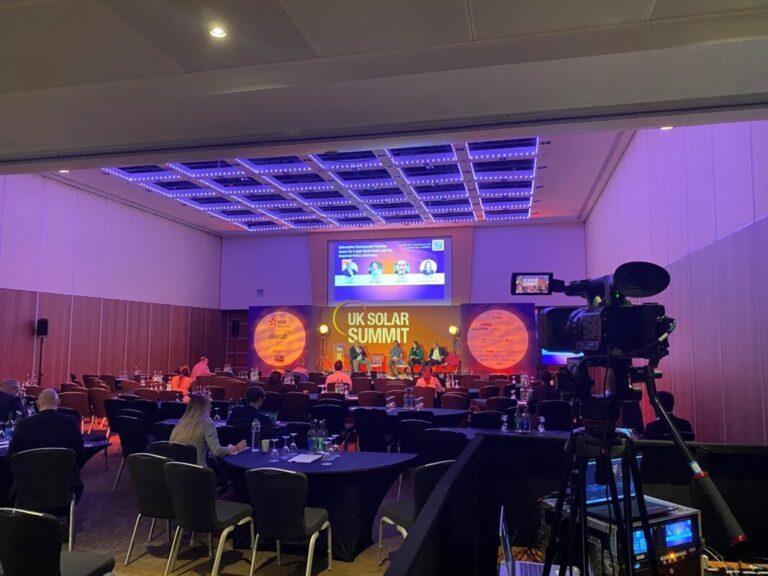According to Connie Duxbury, founder of Croydon Community Energy and community manager at Younity, who spoke at the UK Solar Summit in London today, there is a “lack of awareness” that the community solar sector “even exists” in Britain.
Duxbury and fellow panellists Liz Leffman, leader of Oxfordshire County Council, and Nadia Smith, director of Community Energy London, said the lack of awareness is largely due to a lack of support from both local and national government.
Duxbury said: “There is no top-down national energy strategy. Some [local authorities] are really supportive and set up community energy funds; Some are not interested or have no money. If there was some national guidance… to guide local authorities, I think that would really help.”
Leffman, a councilor in Oxfordshire, said: “It is up to local authorities to have a plan” when it comes to community energy, “and I don’t think this is orchestrated at all by the national government at the moment.”
She said that when reviewing their plans, local authorities “need to make provision for things like solar energy. What often happens is that these things just appear and the local government has to make a decision about it. It has to be planned into everything they do.”
Smith agreed, but said that “for community groups, we have to tackle it both from the top down and from the bottom up. If we continue to wait for the government to include community energy in their plans, we will probably have to wait a very long time.”
“We have seen constant changes in government in recent years [and] the solar energy sector has been hugely affected by everything that has happened. Especially small-scale things.”
By way of comparison, she mentions electric vehicle charging, where the government “has had a clear strategy… and we have seen huge adoption in that sector. We need that national commitment.
“That said, in the meantime, it’s good to rely on city council members,” she said. Smith places particular emphasis on dialogues between congregations. “When local governments actually talk to each other and learn, I think we’ve seen the best progress.”
Social and natural benefits
When it comes to success in community engagement, Leffman highlighted efforts in Oxfordshire to integrate biodiversity and nature into solar projects, and to demonstrate that the plants are unobtrusive in the landscape.
In the wake of the written ministerial declaration on solar farms and food security, which deployed anti-solar rhetoric last month while many laws remained the same, these issues are of particular importance.
In contrast, Smith said that in her experience, “community energy groups that have done very well are the ones that have focused on broader social issues and not just clinging to environmentalism.”
“Most people in our lives don’t care about energy and don’t care about sustainability,” she continued. “The things they care about are the cost of living, paying their bills, finding food they can afford that is also healthy.
“So it’s about us thinking about how we can use the income from this site – carbon emissions are one benefit, but there is so much more we need to do to achieve economic and social sustainability in our area.”
Both speakers’ perspectives seemed to encompass the different concerns of communities and the headwinds facing solar energy developments in different parts of the country.
Developer involvement
For developers who want to work with communities, Smith said, “get in early.”
“Go out and do things in the community where people go. Let’s face it, no one goes to the Council’s website or your solar developer’s website. If you’re going to host events, do them in community hubs where people already go.
“Why expect people to come to you? You have to go to the people.”
Community projects are overwhelmingly run by volunteers, which Smith says is both a blessing and a curse. “It means we have people with brilliant skills at the top of their industries, but at the same time it means a lot of people are dropping out.”
It also creates a problem with seed funding, she said, because no one is paid to set up investments or planning.


